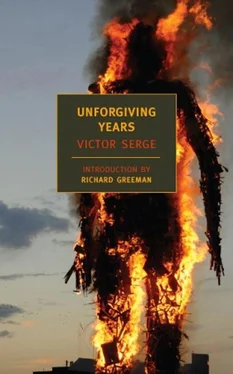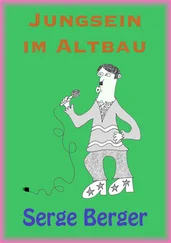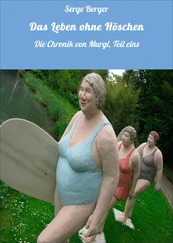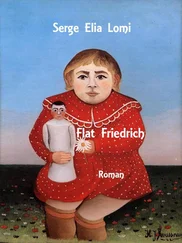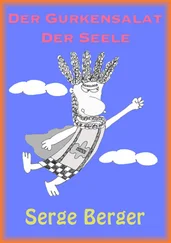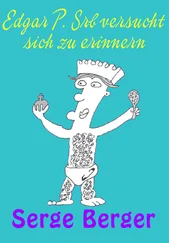The large rectangular plaza was strung with white bulbs, span-gling the blue translucence as though for a fete of long ago. Stately trees loomed over it, and above them rose the old towers of the cathedral, bathed in a fading radiance that would never wholly fade, it was so pure, so richly infused with the expiring colors of the sky. A chattering broke out as legions of wings, excited by some infinitesimal disturbance, described an aerial arc from one canopy to the next… Cheap bars turned on a rainbow of lights which did not clash with the sunset. Brown heads floated aureoled in wide pale sombreros, black hair cascaded over young girls’ shoulders. Barrows of fruits and sweets trundled by, like displays of massive gems formed by the genius of color itself for caressing the eye… In front of a rudimentary grill heaped with dark organ meats glistening with grease, three hatless men stood in a row. All three curiously shapeless; the first olive-faced, the second lemon-faced, and the last with a solemn death’s-head perched on his neck; violet glints fell as three pairs of sticks flew up and down the wooden keyboard of the marimba and crystalline music poured out. The little dark angel glanced longingly at the marimba. Daria signaled him to stop. They listened for a moment, the visitor from another world of cruelty and the Indio child caked up to the eyes in dirt — to wide eyes as dark as agate, as expressionless as polished agate. The music cradled a canoe floating invisible among festoons of creepers, long ghostly lizards lay in wait beneath tepid waters in darkness… “What’s your name?” Daria asked the dirty angel, to break the spell. “Jesús Sánchez Olivares, at your service.” She heard only his first name of Jesús. Listen to the music of innocence, Jesús, if you can… The boy added in dignified tones, “You may call me Chucho, Señora” — that being the diminutive of Jesús. When the music stopped, Chucho produced a copper coin from a pocket of his torn pants and put it into a musician’s hand.
Daria avoided the tourist hotel, repulsed perhaps by the frigid glance of a blond traveler who stood smoking at the entrance, his Leica dangling on his chest… “Not these creatures, no no no…” “Well then,” proposed Chucho, “I can take you to Don Saturnino’s hostelry…” Where better to spend one’s first night in Mexico than under the roof of Don Saturnino? “It’s clean, and much cheaper,” the boy told her. “So you’re not an American?” “No, I’m not” — but she didn’t say what she was.
The majestic door of the Casa de Huéspedes opened onto a little blue alley which wandered off toward a mountainscape resembling a cloud-covered sea. The lighted patio was nothing less than a green fairyland of tall plants. A fountain whispered. Under the mysterious seclusion of archways, a bare bulb lit what must have been the laundry area: two dark-skinned girls were slowly moving about there, one dressed in beetle-wing green with a glint of red, the other in nuptial white. They appeared as the sacred spirits of this place, but they were simple servants, busy with the ironing.
The voyager found herself face-to-face with an idol standing out against a background of huge green leaves; it was surely very old, made of a gray porous volcanic stone. The hero or god was squatting on his heels, hands on knees, forgetful of movement. Its head was girded by an intricate diadem. The massive face, as large as the torso, was stark, attentive, abstract. “The god of silence,” Daria decided, “the only one of the ancient gods we should think about resurrecting…” The god seemed to answer her: “You are welcome here, Señora.” It was the guttural voice of Don Saturnino, who indeed looked very like the god but with a clipped white mustache, earthy wrinkled skin, two gold teeth, and a short white jacket stitched with green arabesques. He was totally incurious about her. The names and papers of his guests concerned him no more than their itineraries. He sprinkled his laconic remarks with a bueno, bueno that implied nothing in particular; mentally continuing his game of dominoes with Don Gorgono, he quickly sized up this undemanding pilgrim, not rolling in dollars, harmless, one of those forlorn ladies who often retire to a pueblo, to collect the local pottery and write — or not — a book… He showed her to a spacious room covered in tiles, opening directly onto the patio. “The shower is here, Señora.” A tiny light was burning beneath a votive picture of the Virgin in glory. The air was cooled by a breeze like a clear pond.
Daria had her broth, chicken, and rice served to her beside a spindly bush, some of whose leaves were green and others bright red… Don Saturnino ambled over for a smoke. He had the head of a marvelously human, friendly chimpanzee, penetrated with a peculiar intelligence. His straight white hair was cut short. He looked at the voyager with eyes both sunny and remote, as though to say: I have nothing to say to you, but your presence pleases me; I see many things in you that do not concern me. Pleasant cool of the evening! Daria spoke first.
“Your country is very beautiful,” she said.
“ Verdad ? It’s a magnificent country, Señora, an opulent country…” (Don Saturnino made no attempt to conceal his pride.) “And yet so backward! A country of much poverty, as you will see… Are you planning to visit the Lagoon?”
“I am,” Daria said, startled.
“From here you can only go to the Lagoon, and no farther than San Blas…”
Daria repressed a shudder: San Blas was her goal (just beyond San Blas).
“Are there many ruins around here?” (She knew from the guidebook that there were.)
“We live on top of ruins, Señora. But there are not so many in these parts. The pyramids of Isla Verde, you can reach them by boat from El Águila… And up in the sierra behind San Blas there is Las Calaveras, the Skulls, an ancient altar of sacrifice. Many thousands of years old.”
(According to the books, these Aztec, or Toltec, or other ruins were at most a thousand years old. But here, in the everyday strangeness of this courtyard, exact chronologies — always a chimera — counted for very little. One was closer to the time scheme of rocks, of plants, than to historical time calculated by learned men…)
“Thousands of years,” Daria echoed, entranced.
Don Saturnino liked a woman who was attracted by the centuries. He remembered his youth, and his eyelids crinkled. He said, “I fought for the revolution here, in my country. We made a good stand at Isla Verde, on top of the pyramids…”
“So, you fought for the revolution too,” went vaguely through her mind.
“ Bueno, bueno ,” went on Don Saturnino. “There’s a tourist at the Hotel Gloria, he’s traveling in a very fine car… a Mr. Brown. Perhaps you could arrange with him? Our buses are so poor, Señora.”
“What tourist? Do you know him? Where is he going?”
The genial brown face dimmed. “He is an American. I saw him in the plaza. He has a fine car… I like horses better, horses are intelligent…” Daria explained that she wished to travel alone, at her own speed. “I understand. Bueno … Good night, Señora…” Don Saturnino went to lock the outside door with a big, old-fashioned key. Some of the bush’s leaves were a beautiful red, the color of fresh blood, of dark blood, of pink blood. It was a nochebuena , “Tree of the Blessed Night.”
* * *
Even on a good map, San Blas figured as nothing more than an insignificant circle marked on an ocher stain between the shore of the lake and the hatching of the sierra; no roads passed through, no trace of an Indian settlement. The lake spread out among wooded hills, but here was only rock and sky. The end of the world — in this part of the world. The automobile road ran along the Laguna, passed through the mountain village of Pozo Viejo — Old Well — descended toward San Blas, then cut at right angles away from it. The dotted line of a track seemed to follow the shoreline farther, petering out after a few miles… Bruno and Noémi Battisti were probably living at that spot. From the city to San Blas it was a good five hours by bus. The guidebook discouraged expeditions in that direction: there were no first-class hotels, no unusual fiestas, no famous landmarks, no indigenous crafts to speak of, nothing but harsh mountains, the Indian earth, the ancient race, unembellished… The map brought a smile of reminiscence to Daria’s lips. Far north of the Trans-Siberian, beyond Lake Baikal, the maps would look much like this one, highways bordering desert lands, and the guidebook, if there was one, would inform of another Isla Verde: “On Green Island stands a tumulus attributed to the Reindeer Civilization…” There, too, the years are counted in the thousands. Under a wan Nordic sun, the solitude might be broken by a sinister encounter with a penitentiary work brigade… Special travel permits would be required… Even more essential, a special armor for the heart, to guard against pity. No Trees of the Blessed Night, only dour, rugged conifers, planted along the slopes like a mounting crowd, an austere motionless army, endlessly measuring the harsh grandeur of existence… Earth, our mother, your deserts are sisters.
Читать дальше
